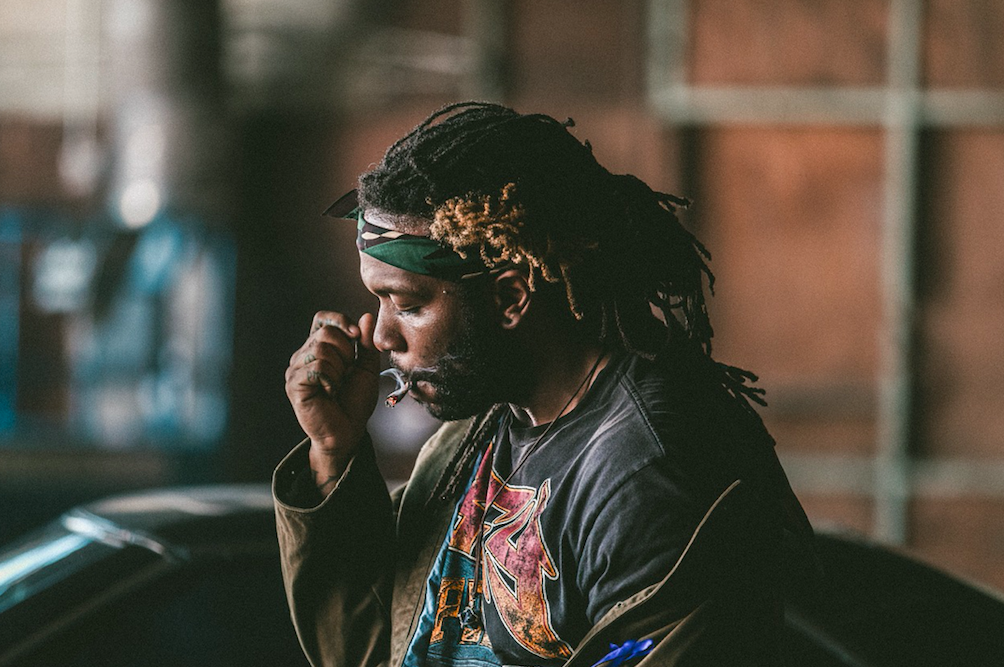
By Rita Thompson
From the Hindu God Shiva to Bob Marley, we’ve seen dreadlocks worn by nearly every culture in the world. Nonetheless, with recent news stories recounting discrimination of students and employees with the age-old hairstyle, the Emerald decided it’s high time for a crash course on dreadlocks and the bill that is working to fight this bigotry.

History of Dreadlocks
Introduced into the mainstream by Bob Marley, dreadlocks have long been synonymous with Rastafarian and cannabis culture. The hairstyle’s history is nearly impossible to nail down. However, in 2,500 B.C., the Hindu scripture depicted the God Shiva with a mass of dreadlocks twisted on top of her head.
According to History.com, in its Indian origins, the “jaTaa,” which translates to “wearing twisted locks of hair,” was worn by many at the time. In fact, spiritualists from all walks of life refrain from combing, cutting, or dressing their hair as a response against physical appearances and vanity.
Rastafarians have grown dreadlocks for decades. Dreadlocks first became a symbol of Rastafarian culture in the 1930s. It served as a response to images of Ethiopian soldiers who vowed not to cut their hair until their emperor, Haile Selassie, returned from exile.
“Although Ethiopian Emperor Haile Selassie did not seem to consider himself a God, many Rastafarians believed he was […],” Stephanie Freeman, a professor at North Carolina Central University, explained to Ebony.com. “In the Bible, Jesus will return as the Lion of Judah, so Rastafarians wore dreadlocks to symbolize a lion’s mane and the return of a powerful leader.”
In an attempt to imitate the Nazarites and Hindu, Rastafarians wore their hair in matted styles, thus carrying the term “dreadlocks” into common use.
At that time, they began to refer to themselves as “dreads” to signify their dread and respect for God. However, today the preferred term is “locs.”
Cannabis and Rastafari
Meant to encourage self-realization and wisdom, Rastafarians have used cannabis as a meditative tool for nearly 100 years. Dread heads believe it opens the mind, allowing for a connection to Jah.
It’s unlikely a Rastafarian will use the term cannabis, explains the BBC. Instead, it’s known as “wisdom weed,” or “holy herb.” The reference is based on biblical passages such as Psalm 104:14, “He causeth the grass for the cattle, and herb for the services of man.”

The Great Oppression
More than 11 million Africans left the continent between the 16th and 20th centuries, and were forced into slavery. Many grew locs on the three to six month journey to the U.S.
When they arrived, slave traders cut their locs and forbid the slaves to grow them back, deeming them “dreadful to look at.” Upon the abolishment of slavery in 1865, many emancipated men and women felt pressure to fit into Eurocentric, 19th century America.
“Black people felt compelled to smoothen their hair and texture to fit in easier, and to move in society better and in camouflage almost,” explained Aaron Lynch, producer of the African Origin exhibition at the Museum of Liverpool, to BBC.
Lynch nicknamed the post-emancipation era “the great oppression.”
“Men and women would put their hair in a hot chemical mixture,” says Lynch. “That would almost burn their scalp, so they could comb it back and make it look more European and silky.”
Hairstyle Discrimination in the 21st Century
Intolerance toward hairstyles didn’t end there. Today, people all over the country continue to face similar discrimination. In fact, a recent study by Dove finds, “A Black woman is 80% more likely to change her natural hair to meet social norms or expectations at work.”
DeAndre Arnold, a high school student in Texas, has faced multiple in-school suspensions. He may not be allowed to walk in his graduation as a repercussion for his hairstyle, which does not follow the school’s dress code policy.
Arnold has worn dreadlocks since the seventh grade. It’s an expression of his Trinidadian heritage. Arnold always abided by the school’s hair-length limit. However, school officials recently decided that wearing his hair up no longer satisfies the dress code.
The CROWN Act
 The Creating a Respectful and Open World for Natural Hair (CROWN) Act aims to put an end to hairstyle-based discrimination. Spearheaded by Dove executive Esi Eggleston Bracey, the CROWN coalition is an alliance of organizations working to highlight the biases that pressure women to conform to Eurocentric beauty standards.
The Creating a Respectful and Open World for Natural Hair (CROWN) Act aims to put an end to hairstyle-based discrimination. Spearheaded by Dove executive Esi Eggleston Bracey, the CROWN coalition is an alliance of organizations working to highlight the biases that pressure women to conform to Eurocentric beauty standards.
“What happens is, your natural hair is one way and you think you have to change that to go into a work environment—because the view of what’s professional is different than what your natural state is,” Bracey told CBS.
In 2019, Sen. Holly Mitchell, D-CA, became the first lawmaker to introduce the CROWN act into law. She instilled it into California’s Fair Employment and Housing Act (FEHA), and education codes. The move made the state the first to ban discrimination against natural hairstyles.
Now, lawmakers in New York and New Jersey are also initiating versions of the CROWN Act. As more advocates push for similar laws all over the U.S., be sure to keep an eye out for updates.
To learn more, visit www.thecrownact.com.



Leave a Reply